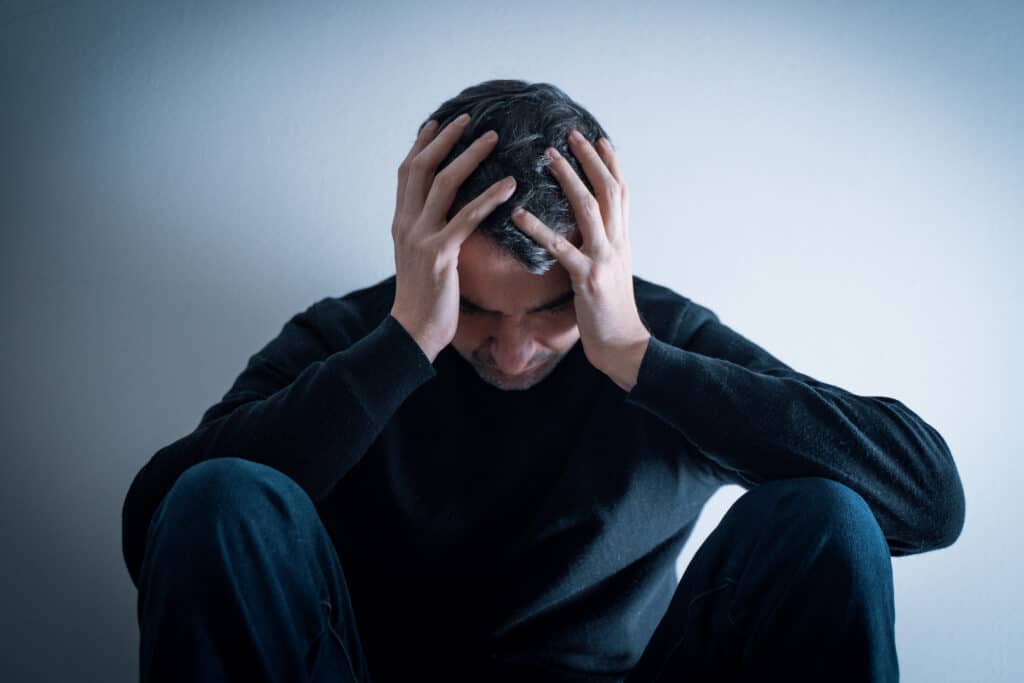What is Trauma?
Post-traumatic stress disorder (PTSD) may arise when people experience a traumatic event such as death, threatened death, serious injury, or actual or threatened sexual violence.*
* This definition applies primarily to simple trauma, or exposure to one circumscribed traumatic event. By contrast, complex trauma may arise from exposure over time to prolonged, repeated trauma, such as physical or sexual abuse, neglect, or violence. The symptom pictures resulting from simple and complex trauma differ somewhat.

Trauma FAQs
What Are Some Symptoms of Trauma?
- Anger
- Depression
- Anxiety
- Intrusive Thoughts or Memories
- Flashbacks
- Fatigue
- Nightmares
- Loss of Concentration
- Increased Startle
- Hypervigilance
- Avoidance
- Isolation
- Emotional Numbering
- Lack of Trust
- Suicidal Ideation or Thoughts
What Are Some Causes of Trauma?
- Bullying
- Serious Accidents
- Betrayal in Relationships
- Abandonment
- Miscarriages
- Sexual Orientation
- Death of a Loved One
- Divorced Parents
Why Is It Important to Address Trauma?
Trauma does not go away with time. It can cause a lasting impact that will build upon itself and surface in many areas of your life. Untreated trauma can cause enough stress that individuals may seek unhealthy coping mechanisms to take away the pain. Trauma also can create negative core beliefs about yourself that can leak out into different areas of your life.
Addressing trauma with a therapist can help you lead a happier, less stressful life. To request an appointment with a counselor at our offices in Salt Lake City, contact us.
How Does PTSD Relate to Trauma?
Not everyone who experiences trauma will necessarily be diagnosed with post-traumatic stress disorder (PTSD). Individuals who feel they may have PTSD may show symptoms like:
- Insomnia or nightmares
- Flashbacks
- Hyperarousal
- Inability to relax
- Avoidance of certain situations
How Do I Cope?
Get moving. Trauma disrupts the natural balance of your body. Your nervous system gets “stuck.” Exercising for at least 30 minutes most days can help put your nerves at rest. Rhythmic exercises involving both your arms and legs are best.
Don’t isolate yourself. Many feel the need to withdraw from others following a traumatic event. Isolation only makes things worse. Connect with others face to face. A network of support will help you heal.
Take care of your health. Along with meditation techniques such as mindful breathing, getting plenty of sleep and eating a well-balanced diet go a long way. Having a healthy body can increase your ability to cope with the effects of trauma.
At Phoenix Rebellion Therapy, we will work with you to develop additional healthy coping skills. Call or contact us online to schedule an appointment.
Do I Need Counseling?
If you feel you have experienced trauma or PTSD, it is important to address these issues and work through them with an experienced professional. We are committed to easing the stresses of everyday life and working with individuals to overcome traumatic events. Please consider counseling if you are:
- Having trouble functioning at home or work
- Suffering from fear, anxiety, or depression
- Unable to form close, satisfying relationships
- Terrifying memories, nightmares, or flashbacks
- Avoiding more and more triggers
- Avoiding things that remind you of the trauma
- Feeling numb and disconnected from others
- Using alcohol or drugs to feel better
Do I Need Counseling?
If you feel you have experienced trauma or PTSD, it is important to address these issues and work through them with an experienced professional. We are committed to easing the stresses of everyday life and working with individuals to overcome traumatic events. Please consider counseling if you are:
- Having trouble functioning at home or work
- Suffering from fear, anxiety, or depression
- Unable to form close, satisfying relationships
- Terrifying memories, nightmares, or flashbacks
- Avoiding more and more triggers
- Avoiding things that remind you of the trauma
- Feeling numb and disconnected from others
- Using alcohol or drugs to feel better
I Tried Therapy Elsewhere & It Didn’t Help. What Now?
Unfortunately, many individuals have tried talking to a therapist about their trauma for years on end without finding relief. Although many therapists say that they can treat trauma, statistics show otherwise. Researchers have found 60% of current therapists cannot name the top three interventions that should be used to help reduce trauma or PTSD.
Our therapists are highly trained trauma experts. We are committed to easing the stresses induced by trauma and PTSD and helping you lead a bright, beautiful future. We specialize in working with military personnel and veterans, but our techniques are designed to help every individual.
How Does PTSD Affect People?
Response to trauma typically falls along a continuum from an acute stress reaction that resolves without the person developing long-term PTSD, to the classic presentation of simple PTSD from one exposure to trauma, to complex PTSD from prolonged and/or repeated exposure to trauma. Anyone who has experienced significant trauma is at greater risk for various physical and psychological illnesses, as well as being more likely to develop a substance use problem or engage in high-risk behaviors.
What Happens During and After a Traumatic or Stressful Event?
When we experience a stressful or traumatic event, our brains and bodies go through a series of natural reactions.
PHYSIOLOGICAL RESPONSE
The brain secretes stress-responsive substances that alter the functioning of the brainstem, the limbic system, and the frontal lobes. The brainstem and limbic system serve to mobilize the body to respond (fight, flight, or freeze), while and the frontal lobes and other cortical areas evaluate the situation and determine the best response.
For most people, after the stressful event is over, they are able to return to physiological homeostasis. For those people who develop persistent PTSD symptoms, the experience of the traumatic event(s) is so overwhelming that it alters how they physically respond to trauma. In such individuals, the limbic system, which is the “threat-assessment” area of the brain and which is designed to adapt to the experience of threat, may become hypersensitive to the point where even minor triggers or unrelated events may give rise to a physical stress response.
PSYCHOLOGICAL RESPONSE
Exposure to one or more traumatic events can change how we view the world and what constitutes right and wrong—or at the very last cause us to question these beliefs, and at worst completely destroy them. Trauma also distorts our sense of time: the past and present no longer have firm boundaries, and the past can intrude into the present at any time in unpredictable and distressing ways.
In addition, because traumatic memories have such powerful sensory components, they do not fall into a narrative (story) structure, but rather feel fragmented, and thus more frightening and disorienting. This sense of distortion between the way we felt before the event or events and the way we feel now about the world all may lead people with PTSD symptoms to avoid people, places, and things that might trigger one of these intrusions. Avoidance, in turn, can lead to more general withdrawal, self-medication with alcohol or drugs to regulate emotions, and trouble concentrating and focusing on the present, as well as other symptoms described below.
What Is the Difference Between Simple and Complex PTSD?
SIMPLE PTSD
Experience of a single, discrete traumatic event often results in feelings of fear, terror, and helplessness. In addition, people may experience some combination of other responses, such as numbness, withdrawal, confusion, and shock. All of these may set the stage for later PTSD symptoms.
While the presence or absence of any of these responses are not necessarily predictive, people who take a more active, problem-solving approach to the traumatic event are less likely to develop PTSD, while those who dissociate are more likely to develop PTSD. Likewise, people with a prior history of exposure to trauma or any emotional disorder, those with a history of substance abuse, those with a family history of anxiety, people separated from their parents at an early age, and those without social support tend to be at greater risk for developing PTSD.
COMPLEX PTSD
Those exposed to repeated trauma over time may present with some or all of the typical PTSD symptoms. In addition, they may show persistent personality changes, including persistent distortions of their ability to relate to others and in their sense of identity; excessive dependence; difficulty planning; and difficulty with decision-making, sometimes to the point of paralysis.
Other common symptoms include helplessness, fear, anxiety, self-hatred, shame, distrust, aggression against self and others, fatigue, sleep and eating problems, and physical complaints. Those suffering from complex PTSD may also be more likely to continue to dissociate in response to real or perceived threats. Even if those who experience repeated or persistent trauma don’t meet the criteria for PTSD, they may still experience subclinical PTSD, depression, anxiety, or other diagnosable problems.
Those exposed to persistent and/or repeated trauma are at greater risk for repeated harm, both self-inflicted and from others. Individuals with post-traumatic stress from both simple and complex trauma may also develop an “emotion-focused” style of coping where their goal is to alter their distressed emotional state rather than attempt to change the circumstances that give rise to that state. This coping style is largely responsible for the high rate of substance abuse among those who experience PTSD.

